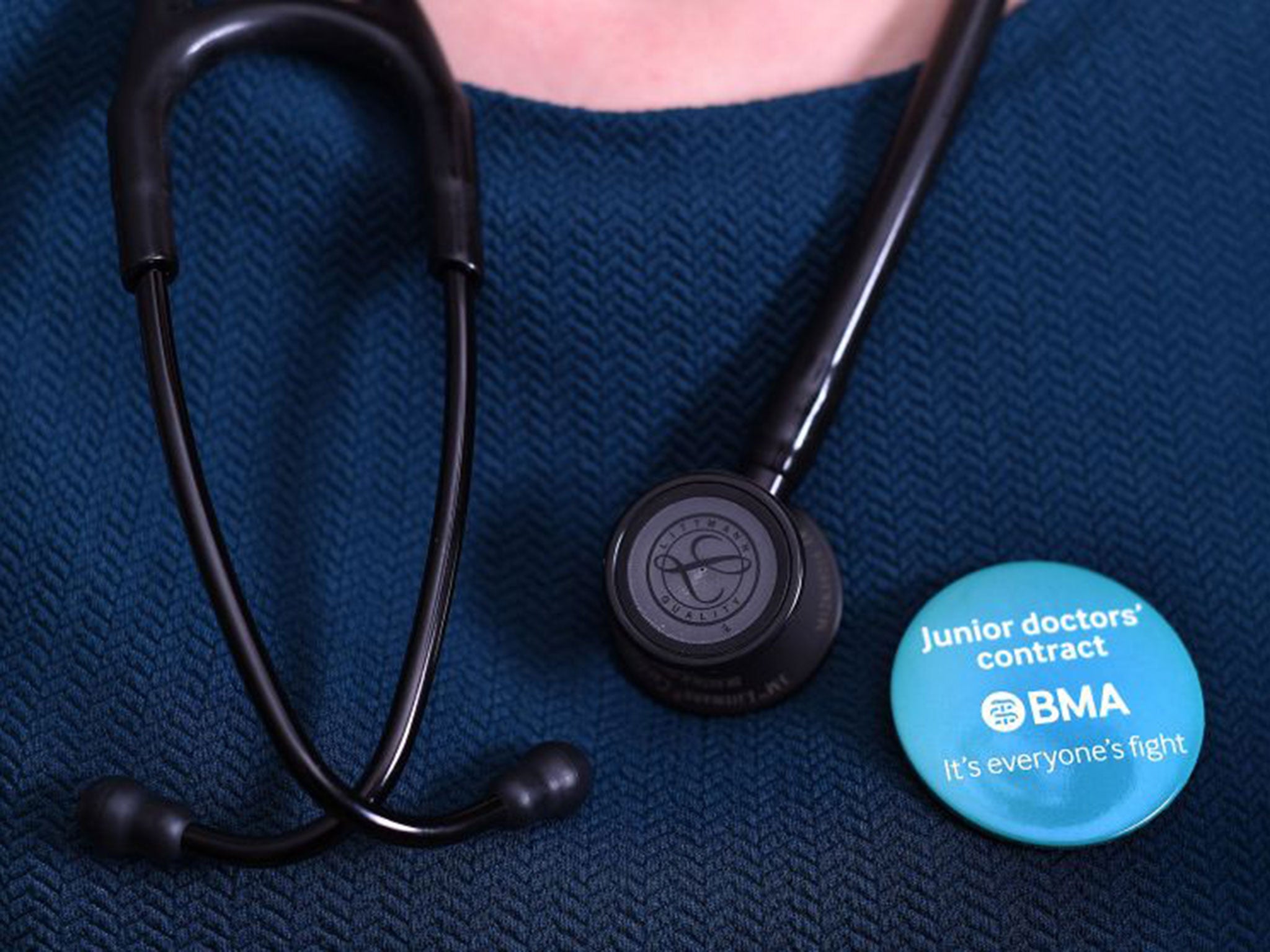Think long working hours won’t take their toll on junior doctors? Look what happened to me
I have not been in work for over a year due to mental health issues incurred by my job. Hunt’s proposed changes will only make cases like mine more common

I'm a junior doctor and I didn’t strike because I'm not at work at the moment. It's been a year since I last worked as a doctor, a year since one horrible night shift when I broke down, burned out, and plunged into a deep, horrible depression.
A year on, about to return to work, I thinks it's time to say my piece. To point out why regular breaks, work schedules, holiday, supportive trainers, and not being too tired, too stressed - or in denial about those things until it is far too late - are important.
In the past year I've been hospitalised (not due to my mental illness but due to a being unable to care properly for my eczema when I couldn't even feed myself); had days when I've been unable to get out of bed; more days when I haven't left the house and periods of euphoria brought on by the steroids which were the only way to control my skin. I've even ended up on benefits.
And through it all I've had so much support, from friends who are doctors, from my fantastic GP, amazing Training Programme Director and from the dermatology teams in Cambridge and Hull. I've seen my junior doctor friends work long, long past their hours in unpaid overtime. I know how hard we all work, how hard I will work, and I want to do it again because I love being a doctor, I love the rush that comes from saving a life and the satisfaction that comes from explaining to a patient (and seeing them finally get) why their medications are so important. Being a doctor is a true vocation and however long it will take me to become a consultant in my chosen field of anaesthetics – several years longer now as I will go back as a less than full time trainee – I want to do it because it's what I love.
But one of the many lessons I have learnt from my turbulent year is that there are human consequences to making doctors work erratic shifts that are too long, without adequate breaks and this new contract will make the situation worse.
Working more weekends will mean seeing spouses and children less. Imposing holiday time during school terms would make holidays impossible. Single night shifts instead of the strings of three or four will make it harder to adjust one's sleep cycle, making doctors more tired and more stressed. Some people can cope with that, others will not.
What of the other changes this contract threatens? 20 minutes break on a 12 hour shift is unworkable, that’s one meal break if you're lucky. Single days off in the week instead off two day weekends will mean seeing friends less often.
I know the dangers of burn out, I've lived them. And I hope as few people as possible have to go through what I did. That's why I support everyone who stood on the picket line, and if the strikes are still going when I return to work, then I will be joining them on February 10th.



Join our commenting forum
Join thought-provoking conversations, follow other Independent readers and see their replies